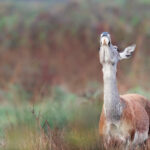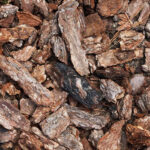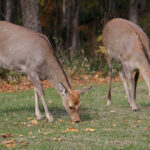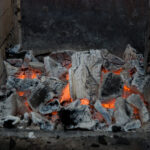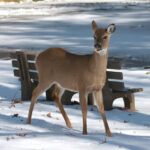As coyote sightings become increasingly common, more people are worried about the risk these predators pose to their safety. It’s natural to feel some concern, especially if you’re planning on spending a night camping in the woods where they roam at night.
But will coyotes attack humans in a tent? To answer shortly, most coyotes avoid humans, and will not attack them, especially if they are within a tent.
Table of Contents
- Coyotes Will Generally Not Attack Humans In A Tent
- Wild Coyotes Have Strong Instincts To Avoid Humans
- Coyotes Are More Likely To Investigate Your Tent When You Aren’t In It
- Having Food Around Can Increase The Chances Of Coyote Sightings
- Dogs May Increase The Chances Of Coyotes Coming By
- Ways To Prevent Coyotes From Visiting Your Campsite
- What Should You Do If Coyotes Do Come Near Your Campsite
- Urban Coyote Attacks Are Becoming More Common
- When Do Coyote Attacks Happen The Most?
- Conclusion
Coyotes Will Generally Not Attack Humans In A Tent
Attacks on humans are rare, and attacks on humans in tents are even more rare. Generally, coyotes are too scared to approach humans, or human-made strucutres.
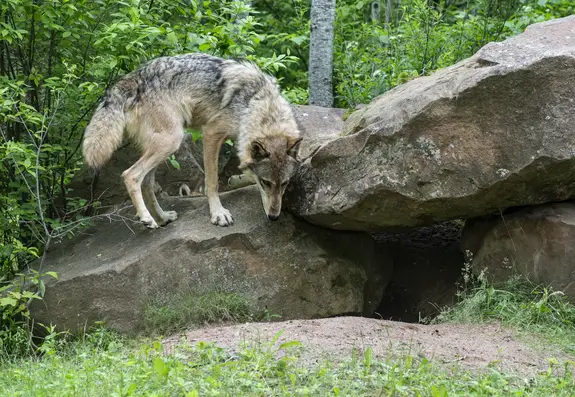
One study in 2015 only found 367 records of coyote attacks in the United States and Canada over the past 40 years.
Of these attacks, most of the victims were doing some sort of activity such as hiking, jogging, or playing outside.
Having food nearby or even actively feeding the coyote can also instigate an encounter with the animal. But coyotes are not provoked by sleeping humans and will typically not approach them.
There have been, however, a few incidents of coyotes attacking people sleeping at campgrounds. These people were sleeping outside in their sleeping bags, though – they would have been more protected if they had been inside their tents.
A coyote did once bite a teenager while she was sleeping in a tent, resulting in minor injuries.
Additionally, a YouTube streamer camping in an abandoned prison claimed his tent was being circled by coyotes at night.
This might have been a territorial response, as the coyotes would not have been used to humans invading this abandoned space they had taken over…
Or it could have just been sensational filming to gain likes and views.
Wild Coyotes Have Strong Instincts To Avoid Humans
They often view humans as threats. Their typical reaction when they see something larger than themselves – such as an adult human – is to run away. Hunting of coyotes is popular in some regions, so the animals are likely even warier of humans in these areas.
Unlike wolves, they do not hunt in packs, so they don’t target larger prey.
Even deer are usually too large for them to take down, so adult humans are not likely to be hunted. Children are more at risk of being attacked as prey, because of their small size.
About a third of recorded coyote attacks against people are predatory in nature, with small children being more frequent targets than adults. These attacks usually happen in residential areas. But once again, these incidents are very rare.
Coyotes Are More Likely To Investigate Your Tent When You Aren’t In It
Since wild coyotes tend to avoid humans, there’s a greater chance that one will snoop around your campsite when you’re not around.
If they sense or smell a human in the tent, they will likely scamper off. However, if there are other smelly things in there, like food, they may be intrigued if they’re hungry.
Having Food Around Can Increase The Chances Of Coyote Sightings
You generally do not have to worry about coyotes while you’re sleeping in a tent, but they may be curious if they smell food.
Like other wild animals you might encounter while camping, coyotes are attracted to the smell of food.
If you have any food in your tent with you, they may come close and investigate. They have a great sense of smell, so it’s important to pack smelly things tightly and away from your tent.
See also: Can Coyotes See Infrared Light? You May Be Surprised…
Dogs May Increase The Chances Of Coyotes Coming By
If you live in a coyote-abundant area and are planning on taking your pooch camping with you, you might want to consider the risks coyotes pose to pets.
They often act territorially in the presence of dogs as they view them as competition or threats. The chance of an attack increases with a dog around.
A small dog may even be targeted as prey. Many of the injuries people have gotten from coyotes have occurred while they were defending their pets from an attack.
Ways To Prevent Coyotes From Visiting Your Campsite
- Keep all food in bins or bags tied securely away from your tent.
- The same goes with any trash or other smelly things you bring – keep it contained and away.
- Leave dogs at home if possible.
What Should You Do If Coyotes Do Come Near Your Campsite
- Be loud: make noise by shouting and banging pots to scare them away.
- Shine a bright light in their eyes – wild coyotes are not used to harsh lights and will run away.
- Act large and threatening. A coyote may mistake you for prey if you look afraid and vulnerable.
- If you encounter the rare incident of a coyote attack, use physical force to fight it off (kick, hit, spray it with water).
Urban Coyote Attacks Are Becoming More Common
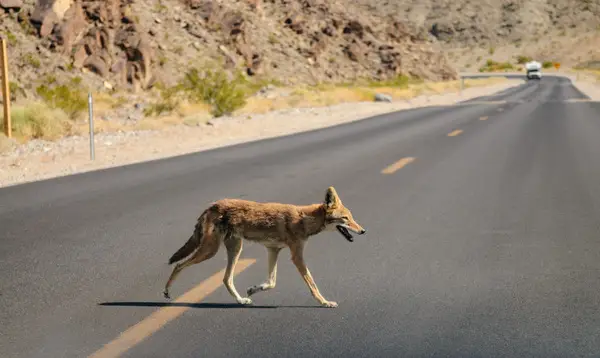
Coyote attacks are not common in the wilderness, where they try to avoid people. They are more common in urban areas, where coyotes have lost the fear of humans.
So if you are camping in a park that’s often visited by tourists, there may be a greater chance of encountering coyotes than if you were camping in the backcountry.
In Stanley Park, Canada, there have been increasing incidents of coyote aggression toward humans.
These conflicts increase because of park visitors feed wildlife, including coyotes, which diminishes their fear of humans and encourages them to get closer to people during the day.
Once in a blue moon, coyotes may attack unprovoked for no obvious reason. One young woman was killed by two aggressive coyotes while hiking in Canada. This is one of the very few instances of deaths caused by coyotes.
When Do Coyote Attacks Happen The Most?
Coyote attacks are more frequent during the spring and summer when they are breeding and raising young. They are more likely to be territorial and aggressive during these seasons.
There is also some debate on if coyotes are even more active during a full moon. Most sources say no, however, there may be some evidence to say otherwise.
When it comes to night versus day, there doesn’t seem to be any difference in the frequency of attacks.
Conclusion
If you see coyote tracks or hear howling nearby, don’t stress out too much. Coyotes will likely leave you alone.
If you have food in your tent or a dog with you, you should be cautious and prepared for a coyote coming to investigate, and for the slim chance that it will be aggressive.
But overall, you should be more concerned about bears and cougars if they live near your camping area. Or even squirrels, which don’t pose much safety risk but can chew a mean hole through your tent!
